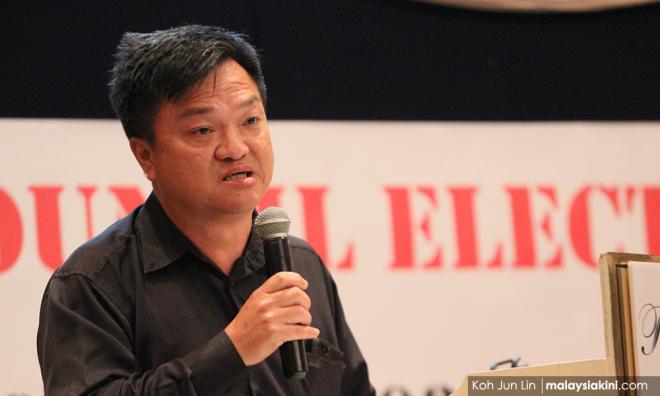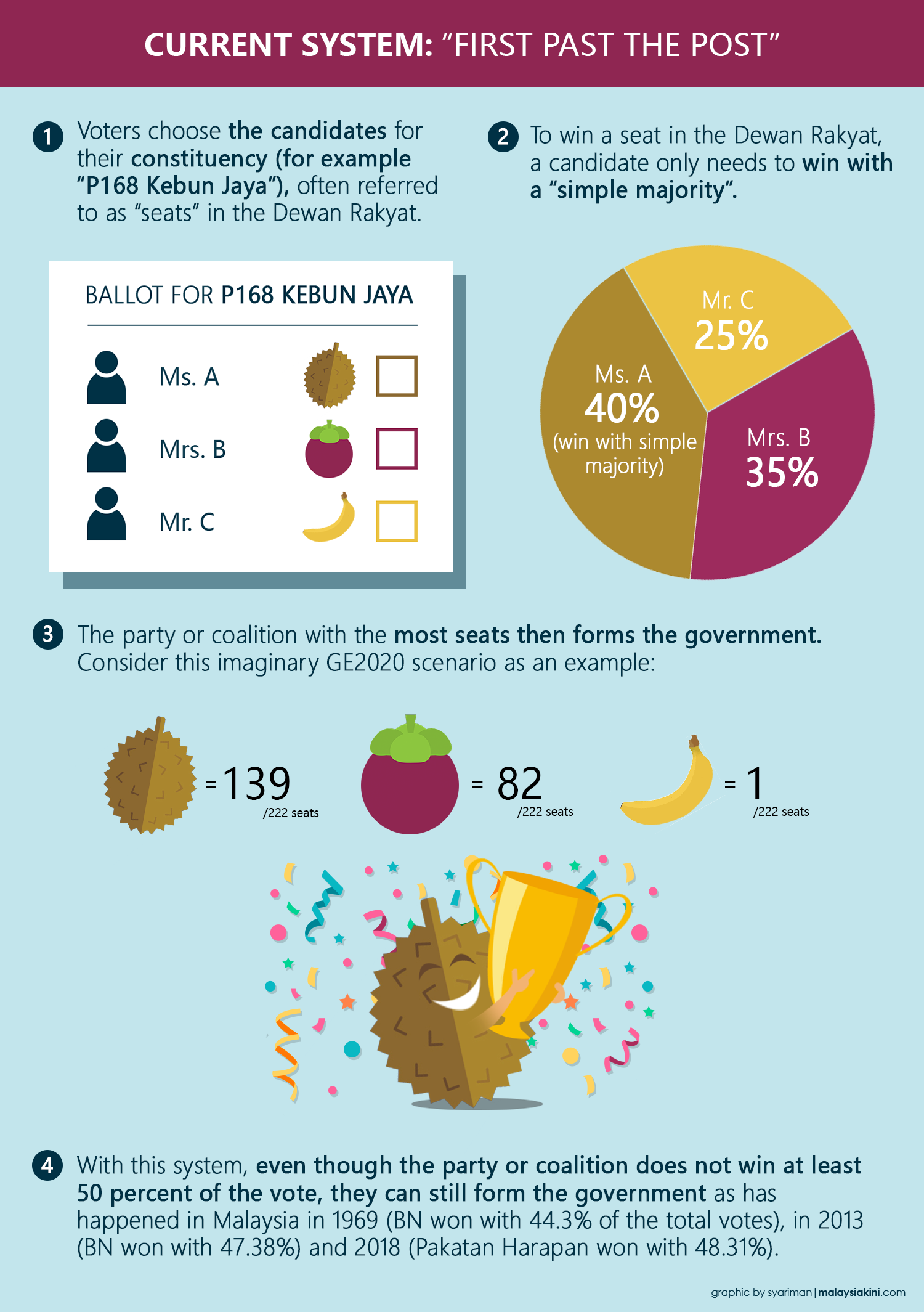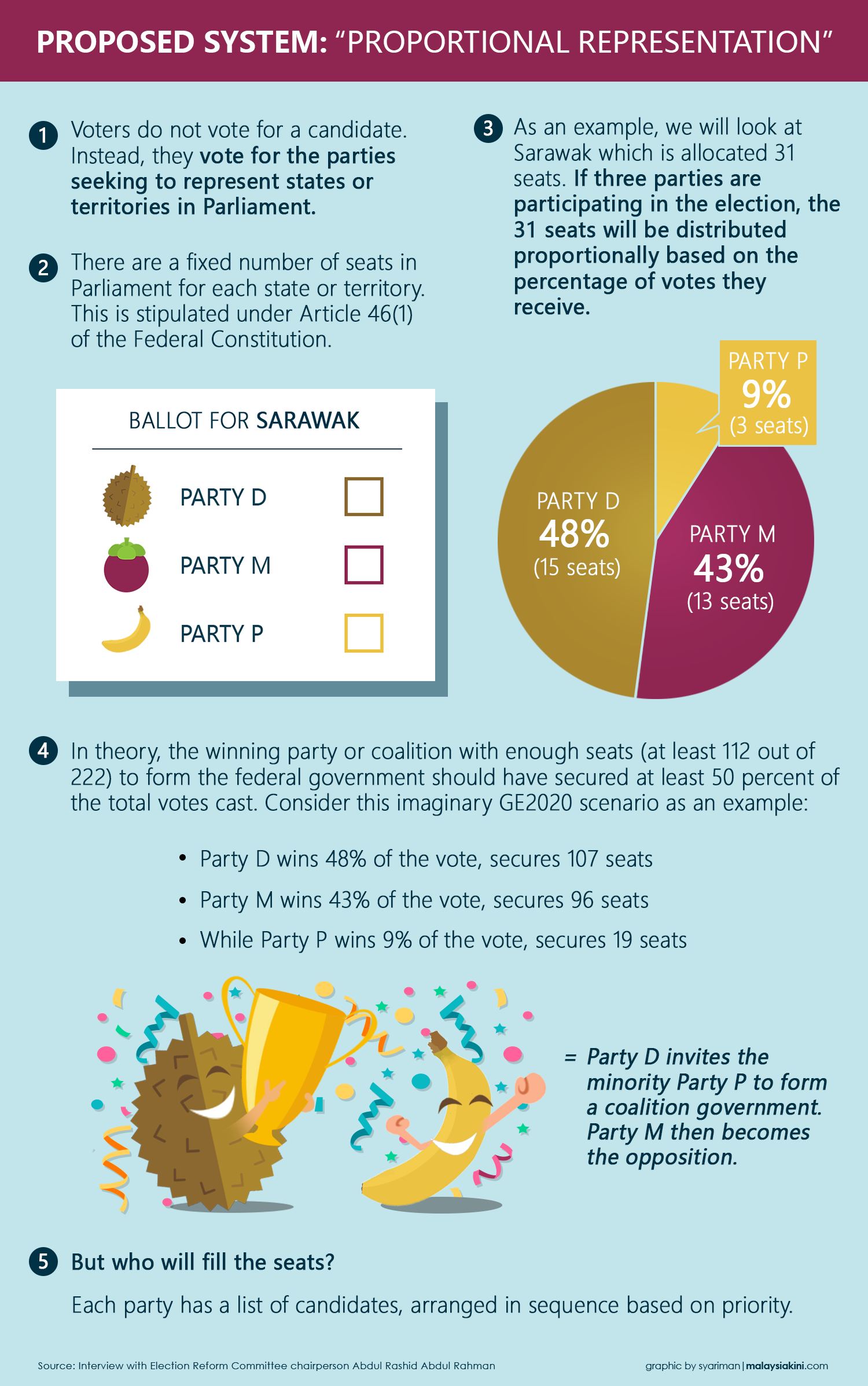
The new electoral system which the Election Reform Committee (ERC) will propose to the government was aimed at partially addressing malapportionment, said ERC member Wong Chin Huat.
Speaking to Malaysiakini, Wong (photo) said the proposed “party-list “proportional representation”(PR) system - which eliminates the need for parliamentary constituencies - can address imbalances in voter weightage within a state or territory.
"Practically speaking, both inter-state and intra-state malapportionment cannot be fixed within the first-past-the-post (FPTP) system in time for the 15th general election.
"The only way to correct malapportionment is to introduce party-list PR system either fully to replace FPTP as the ERC currently proposes, or partially in the form of mixed-member proportional (MMP) as in Germany and New Zealand or mixed-member majoritarian as in Japan, South Korea and Taiwan," Wong said.
Under the current first-past-the-post (FPTP) system, voters elect lawmakers representing specific constituencies, which has a large variance in voter numbers.
For instance, in the Selangor state, which has 22 parliamentary constituencies and an average of 109,000 voters, the biggest constituency (Bangi) has four times the number of voters than the smallest (Sabak Bernam).
The new PR system which the ERC will propose to the government will require voters to choose from a list of parties seeking to represent specific states. The number of seats won by each party will then be distributed proportionally.
In a recent interview, ERC chairperson Abdul Rashid Abdul Rahman said this system would be fairer and more democratic.
However, Wong pointed out that the proposed system will not be able to address inter-state malapportionment because it would require a change in the total number of seats allocated for each state.
Noting that Selangor has an average of 109,000 voters distributed across 22 constituencies, Pahang currently had around 59,000 voters in 14 constituencies.
The number of Dewan Rakyat seats allocated for each state or territory is stipulated in Article 46 of the Federal Constitution.
Wong said the proposed PR system should also incentivise parties to be more moderate.
He said the current FPTP system is largely supported by mono-ethnic constituencies where candidates are more likely to play to that demographic only.
The PR system, in contrast, meant that candidates and parties will have to be appealing across an entire state or territory, which are often multi-ethnic in nature.
"(The problem with FPTP in Malaysia is that) there are no incentives for the opposition to be moderate until the government is weak (which means) there is only intermittent competition for the centre," Wong said.
Another advantage of the proposed PR system was that it will provide parties with an opportunity for under-represented groups to be elected.
"(This will happen) if (the party-list PR system) comes with legislated placement rules, for example, every one in three candidates has to be a woman," he said.
These quotas, he said, can be set nationwide or state by state.
For example, he explained, the parliament can grant power to a state to require a person in a certain number of candidates to be a member of a certain group of people, such as the indigenous groups.
This is difficult to pull off under the FPTP system, he added.
"Gender quota is difficult under FPTP because of the mismatch.
"To have a women elected, they should be placed for strongholds but strongholds normally have strong male incumbents or aspirants.
"Even if male politicians are willing to give way, voters may not like a parachute woman candidate and vote the other parties (which is) one reason why parties are not keen with women candidates unless voters are receptive," he said. - Mkini





No comments:
Post a Comment
Note: Only a member of this blog may post a comment.